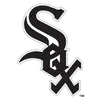
Game starts at 11:30 PM
 Phillies
Phillies White Sox
White SoxGame starts at 11:30 PM
 Phillies
Phillies White Sox
White Sox
Game starts at 11:30 PM
Game starts at 11:30 PM
 Phillies
Phillies White Sox
White Sox
Game starts at 11:30 PM
Game starts at 11:30 PM
 Phillies
Phillies White Sox
White Sox
Game starts at 11:30 PM
Game starts at 11:30 PM
 Phillies
Phillies White Sox
White Sox
Game starts at 11:30 PM
Game starts at 11:30 PM
 Phillies
Phillies White Sox
White Sox
Game starts at 11:30 PM
Game starts at 11:30 PM
 Phillies
Phillies White Sox
White Sox
Game starts at 11:30 PM
Game starts at 11:30 PM
 Phillies
Phillies White Sox
White SoxFull Schedule
7/28
11:30 pm
CHSN
7/29
11:30 pm
CHSN
7/30
6:00 pm
CHSN
8/2
1:30 am
CHSN
8/3
2:00 am
CHSN
8/3
8:00 pm
CHSN
8/6
1:30 am
CHSN
8/7
1:30 am
CHSN
8/7
8:00 pm
CHSN
8/8
11:30 pm
CHSN
8/9
11:00 pm
CHSN
8/10
6:00 pm
CHSN
8/11
11:30 pm
CHSN
8/12
11:30 pm
CHSN
8/13
6:00 pm
CHSN
8/16
12:00 am
CHSN
8/16
11:00 pm
CHSN
8/17
6:00 pm
CHSN
8/18
11:00 pm
CHSN
8/19
11:00 pm
CHSN
8/20
11:00 pm
CHSN
8/22
11:30 pm
CHSN
8/23
11:00 pm
CHSN
8/24
6:00 pm
CHSN
8/25
11:30 pm
CHSN
8/26
11:30 pm
CHSN
8/27
11:30 pm
CHSN
8/28
11:30 pm
CHSN
8/29
11:30 pm
CHSN
8/30
11:00 pm
CHSN
8/31
6:00 pm
CHSN
9/1
6:00 pm
CHSN
9/2
11:30 pm
CHSN
9/3
CHSN
9/4
11:30 pm
CHSN
9/5
10:30 pm
CHSN
9/6
10:00 pm
CHSN
9/7
5:30 pm
CHSN
9/9
11:30 pm
CHSN
9/10
11:30 pm
CHSN
9/11
6:00 pm
CHSN
9/12
11:00 pm
CHSN
9/13
10:00 pm
CHSN
9/14
5:30 pm
CHSN
9/15
11:30 pm
CHSN
9/16
11:30 pm
CHSN
9/17
6:00 pm
CHSN
9/19
11:30 pm
CHSN
9/20
11:00 pm
CHSN
9/21
6:00 pm
CHSN
White Sox Game Replays










